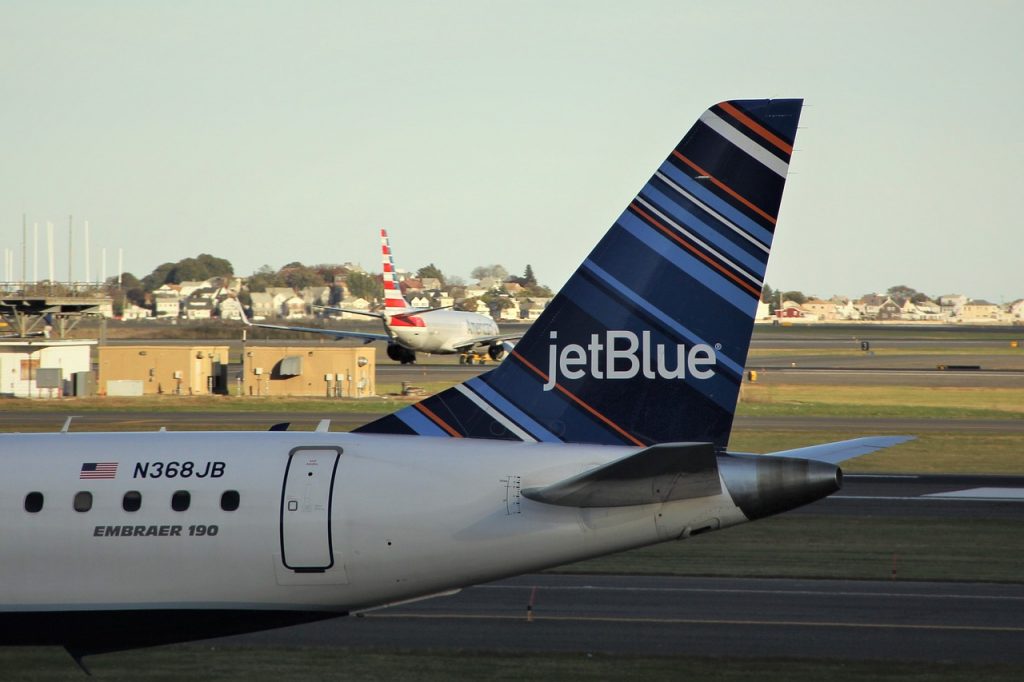JetBlue Acquires Major Airline In Historic Deal
In what amounts to a historic deal and following months of heated competition, JetBlue has officially acquired Spirit airlines.
This article is more than 2 years old

Last month, JetBlue was rumored to be striking a deal with Spirit Airlines in an acquisition deal. Now, the murmurs that spread earlier this summer have finally come true. JetBlue Airways officially purchased Spirit Airlines, a merger that transformed the airline into America’s fifth-largest carrier.
JetBlue and Frontier were the two airlines vying for Spirit Airlines’ attention. A day ago, Spirit went public about its decision to turn down Frontier’s massive offer. Many expected that this offer refusal would mean JetBlue would acquire the carrier. As of today, JetBlue has successfully purchased Spirit Airlines after months of prior attempts.
Both JetBlue and Frontier had been competing ferociously to get the Spirit Airline board to agree to a deal. Allegedly, the Spirit Board wanted a better offer from the airline after they were continuously low-balled. The offer stayed at a minimal rate, with shareholders unpleased by the meek offer. This allowed JetBlue to take the lead in the acquisition offer. One of the critical factors for shareholders siding with JetBlue is that the airline’s deal was an all-cash offer, which was unequivocally enticing to the board. Unfortunately for Frontier’s cash-and-stock proposal, the deal was less attractive to Spirit’s shareholders.
JetBlue CEO Robin Hayes commented on the historic deal and how it will help the company. Hayes stated that the acquisition would aid in “low fares and exceptional service” to continue throughout the upcoming years. Though Spirit is known for its unbelievably low rates, many are worried that the acquisition will increase airfare industrywide instead of decrease it. Industry experts believe that a Frontier and Spirit merger would’ve been better for the customer since both are known for selling cheaper tickets with no first-class seating.
JetBlue could make Spirit prices increase due to their difference in ticket pricing. In contrast to Spirit, JetBlue has planes with higher-rate seating like first-class options. JetBlue is already in the works of adding higher-value seating on previous Spirit planes, which will inevitably bump airfare prices up. Industry experts also believe that a Spirit and Frontier merge would have challenged big competitors like United Airlines and American Airlines to offer lower-priced tickets. But with JetBlue acquiring Spirit, the industry standard for ticket pricing will skyrocket instead of trying to provide the best prices to the average traveler.
JetBlue’s higher price range could ultimately disrupt the passengers who rely on Spirit’s basic economy fare. A change in the economy standard could affect ticket sales tremendously if the average consumer can no longer afford the airfare. Scott Keyes, the founder of Scott’s Cheap Flights, agreed that this merger could inflate prices. He referred to Delta’s ticket-price decrease in 2012 as a “‘Spirit-matching fare” since budget carriers like Spirit accrued unfathomable customer traffic. With the JetBlue and Spirit merger, prices may switch towards higher-paying customers, diminishing budget airlines’ economic stability.
Though not much is confirmed about what will happen after JetBlue acquires Spirit, many infer that the Spirit prices that appeased the average traveler won’t be around for much longer. Because of this, antitrust scrutiny from the US Department of Justice could likely arise, especially if the government organization feels that JetBlue is putting consumers at a disadvantage.







